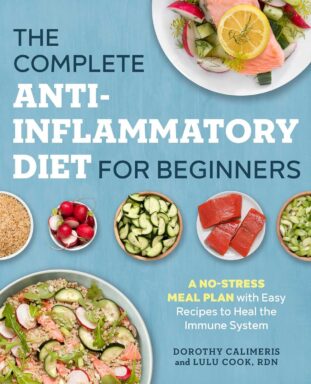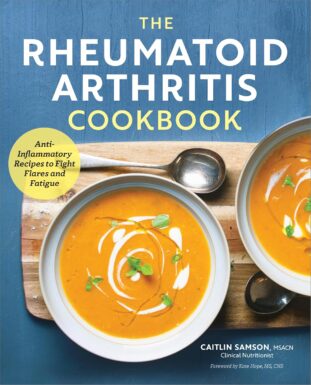The best treatment for inflammation and joint pain is to know what foods to avoid for arthritis relief. Certain foods can exacerbate inflammation, leading to increased pain and stiffness.
This guide discusses the 10 worst foods for arthritis pain and the type of food to avoid for arthritis. Knowing these foods will help you make necessary changes to your diet.
What Foods to Avoid for Arthritis Relief?
There are at least 10 types that are worst foods for joint pain. These are processed foods, red meats, refined carbohydrates, dairy products, sugary foods and fried and fatty foods.
Others are alcohol, salt and preservatives, gluten, nightshade vegetables, and vegetable and seed oil.
These all sound like all the good food you love and it may seem that having arthritis is a “prison sentence ” if you have to avoid all this delicious stuff? But ……..read on to find out how you can still maintain a good quality of life.
Processed Foods
Processed foods are those that have been altered from their original state for convenience, shelf-life, or flavor. They are often high in unhealthy fats, sugars, and sodium, all of which can exacerbate inflammation, a key driver of arthritis pain.
These foods frequently contain trans fats and refined carbohydrates, which can trigger the body’s inflammatory response. Moreover, processed foods are loaded with preservatives and additives like nitrates and MSG, which can further irritate the joints.
Examples of Processed Foods
Here are some common examples
- Packaged Snacks: Potato chips, pretzels, and crackers.
- Fast Food: Burgers, fries, and chicken nuggets.
- Frozen Meals: TV dinners, frozen pizzas, and microwaveable entrees.
- Processed Meats: Bacon, sausages, hot dogs, deli meats, and canned meats.
- Sugary Cereals: Many breakfast cereals with added sugars and artificial flavors.
- Canned Soups: Especially those with high sodium content and preservatives.
- Instant Noodles: Ramen noodles and similar quick-prep meals.
- Sweets and Baked Goods: Packaged cookies, cakes, pastries, and candy.
- Soft Drinks and Sweetened Beverages: Soda, energy drinks, and sugary fruit juices.
- Condiments: Ketchup, mayonnaise, and salad dressings with added sugars and preservatives.
Consuming processed foods can lead to weight gain, adding extra stress on the joints, particularly in weight-bearing areas like the knees and hips.
Reducing the intake of processed foods can help manage arthritis symptoms by lowering inflammation and maintaining a healthy weight.
Red Meats
Red meats, like beef, pork, and lamb, are high in saturated fats and can trigger inflammation in the body, leading to increased joint pain for those with arthritis.
They also contain advanced glycation end products (AGEs), compounds formed when meat is cooked at high temperatures, which further promote inflammation.
Furthermore, red meats are rich in arachidonic acid, an omega-6 fatty acid that can convert into inflammatory molecules.
Regular consumption of red meat can also contribute to weight gain, adding stress to weight-bearing joints and exacerbating arthritis pain.
Again, reducing red meat intake can help manage inflammation and improve arthritis symptoms.
Refined Carbohydrates
Refined carbohydrates, found in white bread, pastries, and white rice, can exacerbate arthritis by promoting inflammation. These as some of the worst foods for joint pain.
This is because they have a high glycemic index, causing rapid spikes in blood sugar, which triggers the release of inflammatory cytokines.
In addition, refined carbs can lead to the formation of advanced glycation end products (AGEs), compounds that contribute to inflammation and joint damage.
They also lack fiber, leading to increased hunger and potential weight gain, further stressing the joints. Reducing refined carb intake can help manage blood sugar levels and decrease inflammation, improving arthritis symptoms.
Food to avoid for arthritis relief include white bread, pasta, and sugary snacks as these can spike blood sugar levels and increase inflammation in the body, potentially aggravating arthritis symptoms.
Sugary Foods
Sugary foods, such as candies, desserts, and sugary drinks are also some of the worst foods for arthritis pain as they promote inflammation.
High sugar intake triggers the release of inflammatory cytokines, compounds that can increase joint pain and swelling. Excessive sugar also contributes to weight gain, putting added stress on joints, especially in the lower body.
Sugar also spikes insulin levels, leading to increased production of AGEs (advanced glycation end products), which are inflammatory molecules that can damage joint tissues.
Reducing sugar consumption can help lower inflammation and alleviate arthritis symptoms.
Dairy Products
Dairy products, such as milk, cheese, and yogurt, can worsen arthritis for some people due to the protein casein, which may trigger inflammation in sensitive individuals, particularly those with rheumatoid arthritis.
Casein can stimulate the immune system, leading to increased joint pain and swelling. Saturated fats in full-fat dairy products can also contribute to inflammation and weight gain, adding extra stress on the joints.
Some arthritis sufferers find that reducing or eliminating dairy from their diet helps decrease inflammation and alleviate symptoms, though this sensitivity varies widely among individuals.
Some people with arthritis may be sensitive to dairy products, which can trigger inflammation and worsen joint pain
Fried and Fatty Foods
Fried and fatty foods, often high in trans fats and omega-6 fatty acids (unhealthy fats), can significantly worsen arthritis by promoting inflammation.
Trans fats, found in many fried foods and commercially baked goods, increase levels of inflammatory markers, exacerbating joint pain and stiffness.
Excessive omega-6 fatty acids, found in many vegetable oils used for frying, can disrupt the balance with anti-inflammatory omega-3s, further driving inflammation.
Also, these foods are calorie-dense, leading to weight gain and added stress on weight-bearing joints.
Limiting fried and fatty foods can help reduce inflammation and improve your arthritis. Fried foods are high in unhealthy fats and can contribute to inflammation in the body, making arthritis symptoms worse.
What Foods to Avoid for Arthritis? Run from Alcohol
Excessive alcohol consumption can increase inflammation in the body, especially in the joints. It can also deplete the body of essential nutrients needed to manage the symptoms of arthritis.
Alcohol can worsen arthritis by increasing inflammation and interfering with the body’s ability to absorb nutrients essential for joint health.
Excessive drinking may lead to higher uric acid levels, triggering gout, a painful form of arthritis. It can also contribute to weight gain, putting additional stress on joints.
Salt and Preservatives – Worst Foods for Joint Pain
High salt intake can cause cells to retain water, leading to swelling and increased pressure on the joints. Many processed foods are high in salt and preservatives, which can trigger inflammatory responses.
High salt intake and preservatives are worst foods for arthritis pain as they can worsen arthritis by causing water retention, leading to joint swelling and increased pressure.
Preservatives like nitrates and MSG may trigger inflammatory responses, aggravating joint pain. Reducing salt and preservative-laden processed foods can help manage inflammation and reduce arthritis symptoms.
Nightshade Vegetables (Certain individuals)
Nightshades like tomatoes, potatoes, eggplant, and peppers contain solanine, a compound that some people believe can aggravate arthritis pain. However, this sensitivity varies widely among individuals, and the scientific evidence is inconclusive.
Gluten (Certain individuals)
For individuals with gluten sensitivity or celiac disease, consuming gluten can trigger an inflammatory response. This inflammation can exacerbate arthritis symptoms, particularly in those with autoimmune forms of arthritis like rheumatoid arthritis.
Vegetable Oil and Seed Oil
Vegetable and seed oils, such as corn, soybean, and sunflower oils, are high in omega-6 fatty acids. While omega-6s are essential for health, excessive amounts can disrupt the balance between it and omega-3 fatty acids, which are anti-inflammatory.
This imbalance can exacerbate arthritis symptoms by increasing inflammatory responses in the body. Omega-6 fatty acids can also contribute to the production of inflammatory compounds, increasing joint pain and swelling.
Better Alternatives
These are oils rich in omega-3 fatty acids and monounsaturated fats, which help reduce inflammation. These include:
- Olive oil: Contains anti-inflammatory compounds like oleocanthal.
- Flaxseed oil: Rich in alpha-linolenic acid (ALA), an omega-3 fatty acid.
- Walnut oil: Also high in ALA.
- Fish oil: Provides EPA and DHA, potent anti-inflammatory omega-3s.
Using these healthier oils can help manage arthritis by reducing inflammation.
Conclusion – What Foods to Avoid for Arthritis
Avoiding these foods may help reduce inflammation and alleviate arthritis symptoms. Instead, focus on an anti-inflammatory diet rich in fruits, vegetables, whole grains, lean proteins, and healthy fats (such as those from fish, nuts, and olive oil).
Related Articles
- What are Unhealthy Foods for the Heart – 13 You Did Not Think Of
- What are Good Herbal Remedies for Inflammation – Herbal Teas
FAQ
What foods to avoid for arthritis flare ups?
Avoid sugary foods, processed and red meats, refined carbohydrates, fried and fatty foods, excessive salt, alcohol, and vegetable oils high in omega-6 fatty acids.
These foods can increase inflammation, worsen joint pain, and contribute to weight gain, putting extra stress on your joints.





